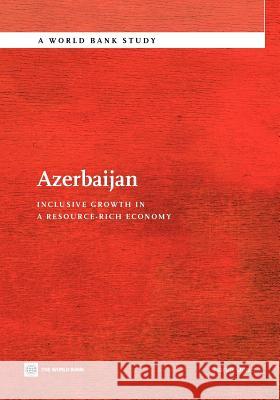Azerbaijan: Inclusive Growth in a Resource-Rich Economy » książka
Azerbaijan: Inclusive Growth in a Resource-Rich Economy
ISBN-13: 9780821397596 / Angielski / Miękka / 2012 / 68 str.
Azerbaijan experienced a 'golden age' in the last decade, during which the average growth rate reached record high levels and poverty decreased significantly. On average, the economy grew by 15.3 percent per year in real terms during this period. As a result, poverty declined dramatically from 49.6 percent in 2001 to 15.8 percent in 2008. This study takes an inclusive growth approach to investigating the ways in which the country's high growth was translated into significant poverty reduction. The report first investigates the sources of growth in Azerbaijan with an emphasis on sectoral composition and structural transformation, and then explores how growth helped to reduce poverty. Next, it analyzes the sustainability and inclusiveness of the recent growth, and focuses on the structural obstacles that constrain further inclusive growth in Azerbaijan. Finally, it recommends a set of policies to overcome these obstacles. The main findings of this study call for a careful strategy in promoting further inclusive growth in Azerbaijan. Poverty is found to be reduced mainly by oil-financed social transfers and real wage growth, which in turn were made possible by Azerbaijan's sharply increasing oil revenues. However, as the share of hydrocarbon sector grew in the economy, structural transformation towards diversification and balanced growth stalled. Moreover, the sectoral composition of recent growth has not been conducive to employment creation. To further strengthen inclusiveness, therefore, there is a need for diversification and improvement in labor market outcomes. This study also identifies areas where policy adjustments can unleash further inclusive growth in the non-oil economy. These include promotion of a greater economic integration into world markets, introduction of a robust and long-term oriented fiscal rule that limits and smoothes the domestic absorption of oil revenues, removing the skill mismatches and distortionary tax incentives that may create adverse incentives in the labor market, and improving institutional aspects of the business environment. A broad strategy for promoting inclusive growth involves implementing these policies in a systematic fashion.











